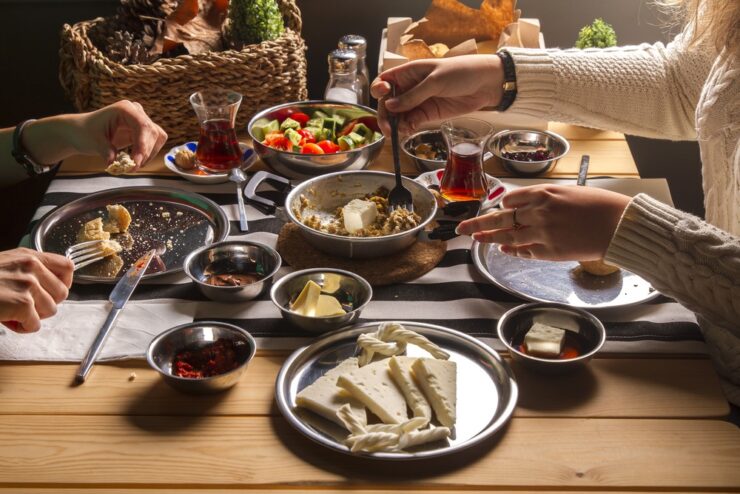The importance of sahur is well known, but the morning scramble can sometimes make for a less-than-ideal meal. Maryam Yusofsuggests five tips to make yours a balanced one.
I’m not a morning person. Although I love Ramadan, I must admit that I’m not always excited to wake up for sahur and eat during the wee hours of the morning.
Sahur is the meal consumed by fasting Muslims before dawn. As it is the only meal before fasting between dawn to sunset, it is highly recommended to eat this meal in order to provide energy while fasting during the day. Nevertheless, waking up in the morning to prepare a meal is not the easiest thing to do when I’d really rather catch a few more minutes of sleep.
When I finally manage to wake up and eat, I am sometimes tempted to eat a lot in order to make up for the fact that I won’t be eating or drinking for the next few hours. However, that isn’t actually necessary. What is important is to consume a balanced meal for sufficient energy during the fast. Here are some simple tips for a healthy sahur!
1. Cover main food groups
Sahur meals should be rich in complex carbohydrates and fiber. Try fiber-rich foods such as wholegrain bread, high fiber cereals, oats, fruits and vegetables. This will make you feel full for a longer period of time and help maintain stable blood glucose levels.
Try to also include high protein foods like fish, meat, milk, eggs or yogurt during sahur. Proteins take a longer time to digest and can help keep you full for a long period while you fast.

2. Drink a lot of water
It should go without saying that you should drink as much water as possible during sahur. On top of that, you should also drink as much as possible after breaking fast and before going to bed so your body is able to avoid dehydration the following day.

3. Eat some dates
The Prophet reportedly said, ‘How good is the believer’s meal of dates shortly before dawn’.[i] Indeed, dates are a quick source of energy for the fasting Muslim as they are an excellent source of sugar, fiber, carbohydrates, potassium and magnesium. Try to consume at least one date during sahur.
4. Avoid temptation
While it is tempting to eat all kinds of food at sahur to satiate yourself before fasting, there are some foods that may not be beneficial to you during the fast. For example, spicy and fatty foods should be avoided as they will only make you thirsty and give you unpleasant stomachache.
If you are as dependent on coffee as I am (unfortunately), you should avoid caffeinated drinks as much as possible. Caffeine is a diuretic so consuming it will trigger the body to lose water. Since stopping your caffeine intake suddenly can lead to side effects like headaches and mood swings, try to gradually reduce your intake.

5. Prioritize convenience
On top of having to wake up early to eat, I sometimes dread sahur because of the need to prepare food for other family members. Try to prepare food the night before and simply heat up the food in the morning. This way, there is less to do and I also avoid a potential ruckus in the kitchen and disturbing my non-Muslim neighbors. Try also packing leftovers from the previous night’s iftar to reheat in the morning.
If you are fasting alone, try simple and convenient yet nourishing meals. For example, a wholegrain tuna sandwich with lettuce is packed with the fiber and protein necessary for the rest of the day.
Although it may be tempting to sleep in and miss sahur, this meal is an important part of fasting. You don’t need to feast at sahur; just eat to sustain you for the day. Plan your sahur meals in advance to ensure that you get necessary nutrients and avoid unhealthy food. I hope these tips can help you plan your sahur meals throughout Ramadan. Happy fasting!
